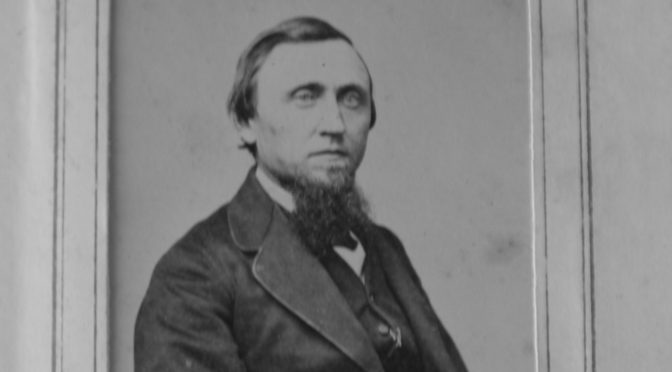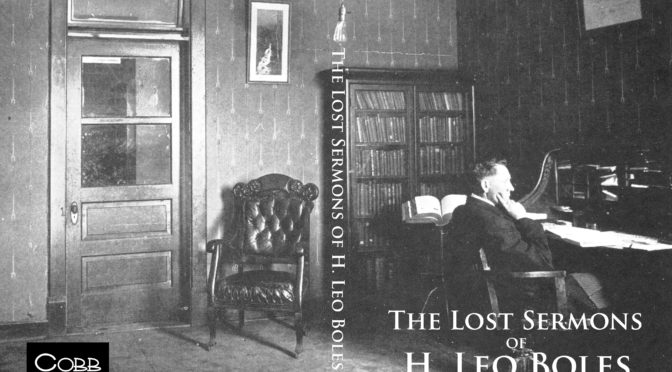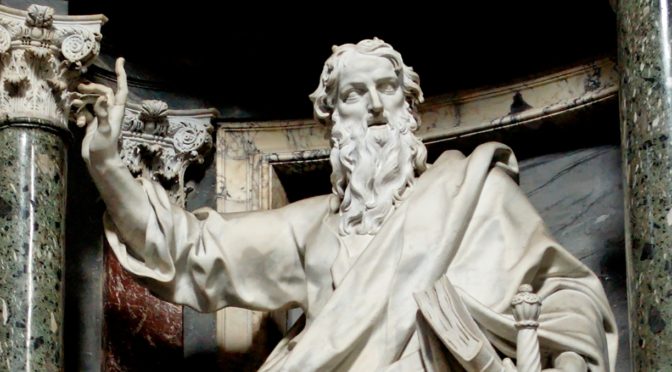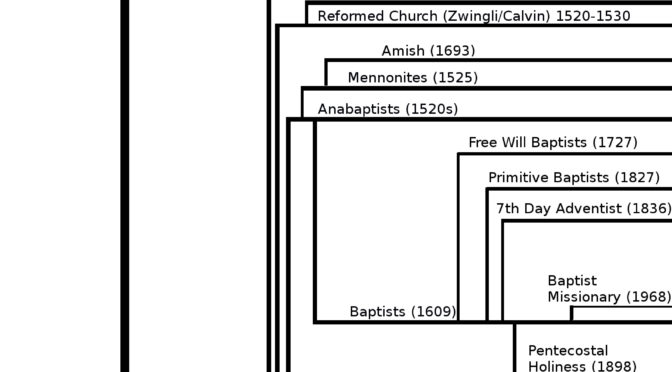The following essay was written by Richard Mansel, and was featured in the first issue of The Quarterly (Vol. 1, No. 1, January 2017). We hope you enjoy it!
INTRODUCTION
Leadership requires a level of courage that eliminates the timid or vacillating. Some are drawn to the flame because of inadequacy or vanity while others heed the call to makes things better. Leadership exposes the character beneath the surface in a way that bluster and bravado can never deliver.
Church government that is common to the New Testament is somewhat foreign to the Jewish society of former days. They resided in a theocracy led by God and were governed by the Law of Moses (Deuteronomy 4:1-2).Those who answer the call of leadership must have the spiritual courage to “stand in the gap”1 (Ezekiel 22:30), ready to face whatever comes. Our faith should be resilient enough to withstand the “flaming darts of the evil one” (Ephesians 6:16, ESV) and persistent enough to never waver (Hebrews 11:6; Revelation 2:10).
The modern tolerance of the aged is in stark contrast to the respect they received in ancient societies. Accordingly, their wisdom was utilized and expected in moments of urgency and gravity.
THE TERM
Ancient cultures commonly elevated their elders to leadership positions of varying degrees because of their sage advice and keen eye for reading situations. In Genesis 50:7, we read about the elders of Egypt and in Numbers 22:7, the elders of Midian and Moab. As heads of certain family groups, they had accumulated some wealth and influence in their lives and were able to command authority.
The concept of an elder was akin to the senator in Latin and the sheik in Arabic.2 The Semitic root means “to be hoary” which refers to advanced age.3 “The hoary head is a crown of glory, if it be found in the way of righteousness” (Proverbs 16:31, KJV). The English Standard Version translates it as “gray hair” and the New King James Version says “silver-haired.”
The Hebrew word for “elder” literally means “beard,”4 so it did have reference to age. However, “In Israel, as among all ancient peoples, the elder is not only a person of advanced age, but also a man of distinct social grade.”5
“In all but a few instances, the elders in the Old Testament appear as a distinct social grade or collegiate body with certain political and religious functions, and not merely as ‘old men.’…but we must bear in mind that the word in actual usage need not by its etymology signify an old man any more than ‘Senator’ or ‘alderman’ does in the United States.”6
Further complicating the picture is the ambiguity of Scripture on this point.
“The Old Testament does not explain who the qualified, leading men of Israel were. Although Israel’s elders are mentioned some 100 times throughout the Old Testament, no detailed description of their organization, appointment or qualification is given.”7
We therefore turn to their limited role in Israel’s leadership.
LEADERSHIP
We know that elders were of more than average age and were men of social standing and influence. Above that, we know very little. We don’t have specific passages addressing their qualifications the way we have in the New Testament (1 Timothy 3; Titus 1). We just have to tie together a variety of passages and make application.
When we talk about their responsibilities we need to remember that they were performed by human beings subject to sin, weaknesses, prejudices, political alliances, etc. (Romans 3:23). Some will do well and others will fail. Sadly, how the leadership goes, Israel follows.
In Exodus 18, Moses is overwhelmed with trying to counsel and judge the growing population of Israel. His father-in-law, Jethro, is alarmed at Moses’ work load. His tasks included judging disputes and teaching the Law to the people (Exodus 18:16). Jethro says to Moses after watching him judge the people the entire day, “What is this thing that you are doing for the people? Why do you alone sit, and all the people stand before you from morning until evening?” (Exodus 18:14).
“Moreover you shall select from all the people able men, such as fear God, men of truth, hating covetousness; and place such over them to be rulers of thousands, rulers of hundreds, rulers of fifties, and rulers of tens. And let them judge the people at all times. Then it will be that every great matter they shall bring to you, but every small matter they themselves shall judge. So it will be easier for you, for they will bear the burden with you. If you do this thing, and God so commands you, then you will be able to endure, and all this people will also go to their place in peace.” (Exodus 18:21-23).
Moses complied and the providence of God instituted a legal system that would propel the nation into the future. Examining their qualifications we see God’s hand. They were “literally men of might”8 who had the “three qualities of piety, veracity and strict honesty, or incorruptness.”9
They were to be “able” or “capable” (NET Bible) men who were undoubtedly able to render decisions on their own without constant supervision. The word “connotes ability, leadership, management, resourcefulness, and due respect.”10
“[A form of the word ‘able’] is…used in expressions like “mighty man of valor.” The word describes these men as respected, influential, powerful people, those looked up to by the community as leaders, and those that will have the needs of the community in mind. They will be morally and physically worthy.”11
Naturally, they must be men who fear God and exhibit humility and respect for the Word of God (James 4:10; Deuteronomy 4:2; 12:32; Proverbs 30:6; Revelation 22:18-19).
“From the time of their appointment, the ‘rulers’ were not merely judges, but ‘heads’ of their respective companies, with authority over them on the march, and command in the battlefield. Thus the organization was at once civil and military.”12
While these qualifications are for judges and not elders, we know that elders worked with judges for many years to come. Furthermore, we see the type men God desires for leadership. These points are crucial when we look ahead for men who will be leaders in the Lord’s kingdom. Their vision and sagacity will be crucial as they discern the proper paths to lead the brethren.
Jethro instructs Moses in the art of delegation and elders will fall into their roles, as a result.
“Wise, decisive, compassionate leadership is a gift from God that every human community needs. Yet Exodus shows us that it is not so much a matter of a gifted leader assuming authority over people, as it is God’s process for a community to develop structures of leadership in which gifted people can succeed. Delegation is the only way to increase the capacity of an institution or community, as well as the way to develop future leaders.”13
As the nation grew and time progressed, delegation led to the functions of elders. “From earliest times a judicial body of elders was formed to give judgment on certain cases. They gathered in the gates of the city where rulings were pronounced” (Deuteronomy 21:19; 22:15; 25:7; Ruth 4:1-2).14
They were tasked to specific kinds of cases. “No professional judgment [was] necessary in such cases: the elders presided over a case, whose consequences [were] clear beforehand.”15 Judges sat for advanced cases where more skilled knowledge was needed.16
Concerning the elders of the city, their “functions [were] best exemplified by the pertinent laws of Deuteronomy.”17 They were usually involved in matters of blood redemption (19:12), rebellious children (21:19), the defamation of a virgin (22:15), and levirate issues (25:9). “All of these cases dealt with the protection of a family and local patriarchal interests.”18
Judges served in local courts (Deuteronomy 17:8ff; 19:17-18; 25:1-3).19 Only once do we find situations where the elders were involved in a legal matter as advanced as a murder case. The elders of the city closest to the site of the corpse had certain responsibilities that had to be performed (21:1ff).
The elders of the people represented the people in spiritual matters and in the teaching of the law (Exodus 19:7; 24:1, 9; Deuteronomy 27:1; 29:9ff; 31:9; Joshua 8:33; 24:1). They appointed leaders (1 Samuel 8:4), declared war (Joshua 8:10) and conducted political negotiations (Exodus 3:16-18; 4:29; Numbers 16:25; 2 Samuel 3:17; 5:3).
APPLICATION
The position of Elder under the Law of Moses is different than the position in the New Testament. Yet, we take what we’ve learned and make a few applications so we can better understand God’s plan for the Church today. “For whatever things were written before were written for our learning, that we through the patience and comfort of the Scriptures might have hope” (Romans 15:4).
It appears that “elders” served an organic function. Their society revered the aged and their influence was obvious. Naturally, God used them to accomplish His goals. Yet, in their origins, we find a nugget that the church can use.
Like the elders of Israel, elders in the New Testament aren’t given age parameters. They must be mature in the faith (1 Timothy 3:6), married and have children (1 Timothy 3:2-5; Titus 1:6). Yet, they come from the people. They’re men who are already working and serving the Lord. The respect they have cultivated helps elevate them to the eldership. By wisdom, presence, and example, the people have witnessed their seriousness of mind and soul.
Elders under the Old Covenant were servants and remained within their boundaries. They worked for and with the judges, kings and leaders of the nation. Their responsibilities were limited but important. They were expected to handle them with respect and sobriety.
Elders in the Lord’s Church need to remember that they’re servants called to do the Lord’s work of tending the flock (Acts 20:28). They must know the brethren, their minds, fluctuations, and trends.
The judges, leaders, and kings had their own problems and stressors. They depended on the elders to be the barometer of the nation and to do what needed to be done in that respect. Likewise successful elders today are focused on their responsibilities rather than trying to do the work of the preacher or the deacons.
The elders were numerous and were to be a united front (Psalm 107:32). Their collective nature is of even greater importance today. As men of God stand for truth and against error, there must be complete agreement and commitment to the doctrines of Scripture.
However, just like today, elders sometimes followed their base instincts instead of God and the nation suffered. Because of their influence, their moral integrity was integral.
“During the early monarchy, the kings depended much on the elders’ cooperation for successful rule” (1 Samuel 15:30; 30:26; 2 Samuel 5:3; 1 Chronicles 21:16).20
David “knew their weakness and fickleness, especially in their unstable political condition. He also knew that he could shepherd the nation effectively only with their cooperation. In a real way, the elders in each city functioned as David’s undershepherds.”
Of course, they fell for Absalom’s deception and caused great pain to David (2 Samuel 17).
They refused to stand for truth when they served under Ahab and Jezebel (1 Kings 21). During the days of Josiah, the missing Book of the Law was discovered by Hilkiah and was read to the king and the people (2 Kings 22). The elders should have been more diligent to help preserve the Word of the Lord.
Isaiah rebuked the elders of their waste, poor stewardship, abuse of the poor, and for failing to follow God’s will (Isaiah 3:14ff).
The lessons are obvious. Elders today must stand alone if necessary to preserve the way of the Lord. They mustn’t allow wolves into the fold (Acts 20:29) and never back down from those who threaten the Church. Elders must be warriors for truth.
CONCLUSION
Men of God have been indispensable since Adam failed to lead spiritually in the Garden of Eden (Genesis 3:1-6). The greatest problem in the Lord’s church today is a lack of sound leadership. The more we can learn about God’s plan for leaders, the better off we will be.
The qualities God desired in judges, prophets, priests, elders, husbands and fathers have, despite their functions and contexts, been basically the same. Put the Lord first, be men of prayer and the Word. We must show our family and the world that God is the answer we all seek. Godly men of strength will desperately be needed until the end of time.
1 Unless otherwise indicated, all Scripture references will be from the New King James Version (Nashville: Thomas Nelson, 1984).
2 Moshe Warfield, “Elder” jewishvirtuallibrary.org/ jsource/judaica/ejud_0002_0006_0_05737.html
3 J. Conrad, “Elder.” Theological Dictionary of the Old Testament edited by G. Johannes Botterwick and Helmer Ringgren. Translated by David E, Green. (Grand Rapids: Wm. B. Eerdmans Publishing, 2003), 4:123.
4 F. Charles Fensham, “Elders,” International Standard Bible Encyclopedia. Edited by Geoffrey W. Bromiley (Grand Rapids: Eerdmans, 1982), 2:53.
5 Warfield
6 Alexander Strauch, Biblical Leadership: An Urgent Call to Restore Biblical Church Leadership (Littleton: Lewis and Roth Publishers, 1986), 139.
7 Strauch, 137.
8 Exodus 18:21, Pulpit Commentary, e-sword, electronic resource.
9 Ibid.
10 Theology of Work Project; www.theologyofwork.org/old-testament/exodus-and-work/israel-at-the-red-sea-and-on-the-way-to-sinai-exodus-1317-1827/the-work-of-justice-among-the-people-of-israel-exodus-181-27/
11 Note 62; www.christianleadershipcenter.org/exod.32.pdf
12 Pulpit Commentary, Exodus 18:25, e-sword, electronic resource.
13 Theology of Work Project
14 ISBE 2:53
15 Weinfeld
16 Ibid.
17 Ibid.
18 Ibid.
19 Ibid.
20 Strauch, 144.




